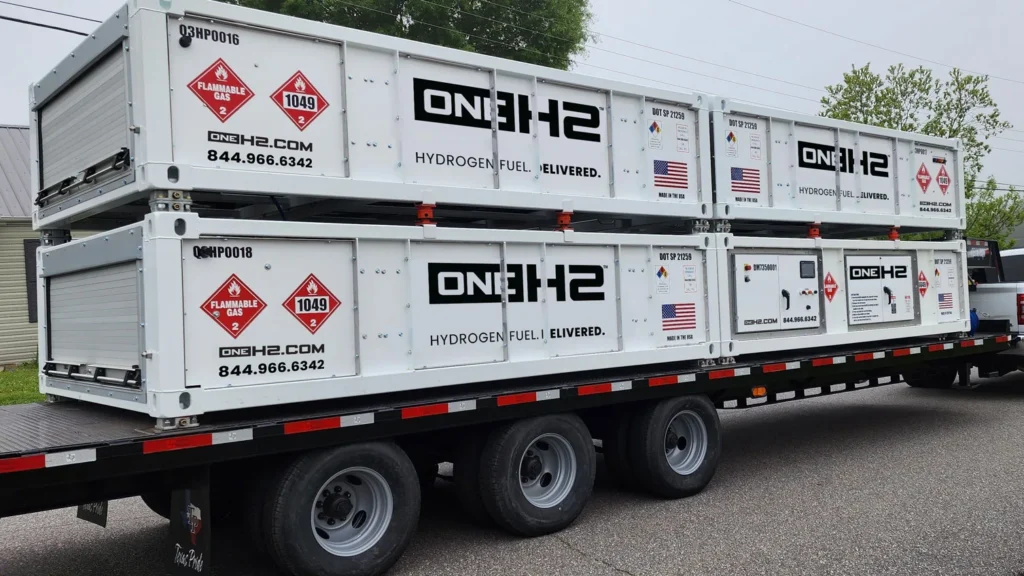Methods for storing and transporting hydrogen can vary widely depending on the use case. Today, most hydrogen-powered vehicles utilize some form of onboard hydrogen storage in the form of tanks. These tanks typically store compressed gaseous hydrogen at a pressure of 350 or 700 bar (5,000 and 10,000 psi).
Passenger cars and other light-duty vehicles with lower average driving ranges generally utilize 350 bar hydrogen. This option is best suited for applications with higher onboard storage capacity or where local refueling is available, allowing for more frequent refilling of the onboard hydrogen tanks. For heavier-duty vehicles and/or vehicles with longer driving ranges, 700 bar hydrogen is used. The 700 bar option is better for applications requiring a longer range between refueling stops or vehicles carrying heavier loads. The pressure at which hydrogen is stored or transported generally depends on the type of vehicle being fueled. Fuel stored at higher pressures can easily be used to fuel a lower-pressure vehicle but not vice versa. That’s why OneH2 trailers and mobile fuelers transport hydrogen at 520 bar and 930 bar. Holding hydrogen at a pressure that is above the vehicle tank’s full pressure allows OneH2 to simply cascade fill from our trailers without the need for additional compression at the point of refueling. This higher pressure increases efficiency in transportation, simplifies refueling infrastructure requirements, and allows for easy fueling of hydrogen-powered vehicles using 350 or 700 bar hydrogen fuel.
Many compressed hydrogen transportation systems today transport hydrogen at a lower pressure than the bar required for use in hydrogen fuel cell vehicles. This requires additional compression once the fuel arrives onsite before it can be dispensed into vehicles. It also takes up more space during transport, reducing efficiency and increasing the cost-per-kilo of usable fuel. OneH2’s hydrogen trailers and mobile fuelers transport hydrogen fully compressed and ready to fuel a 350 or 700 bar vehicle with no additional pressurization required. This eliminates extra steps and saves our clients valuable time.
As technology advances to allow for higher energy density in hydrogen storage, OneH2 will remain at the forefront of hydrogen generation, transportation, and fueling research. We’re dedicated to helping our clients access the hydrogen fuel they need to meet their emissions and uptime goals.
